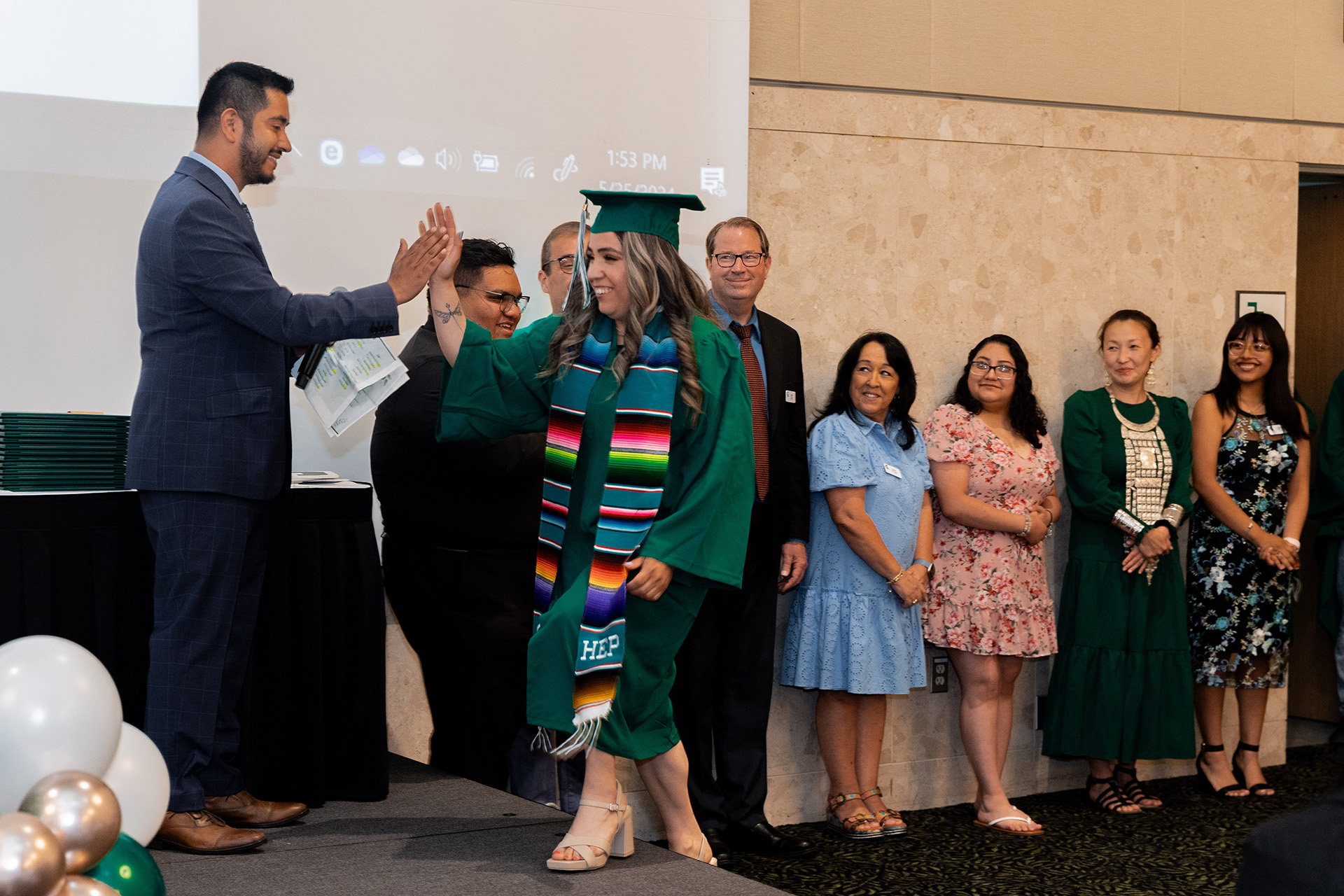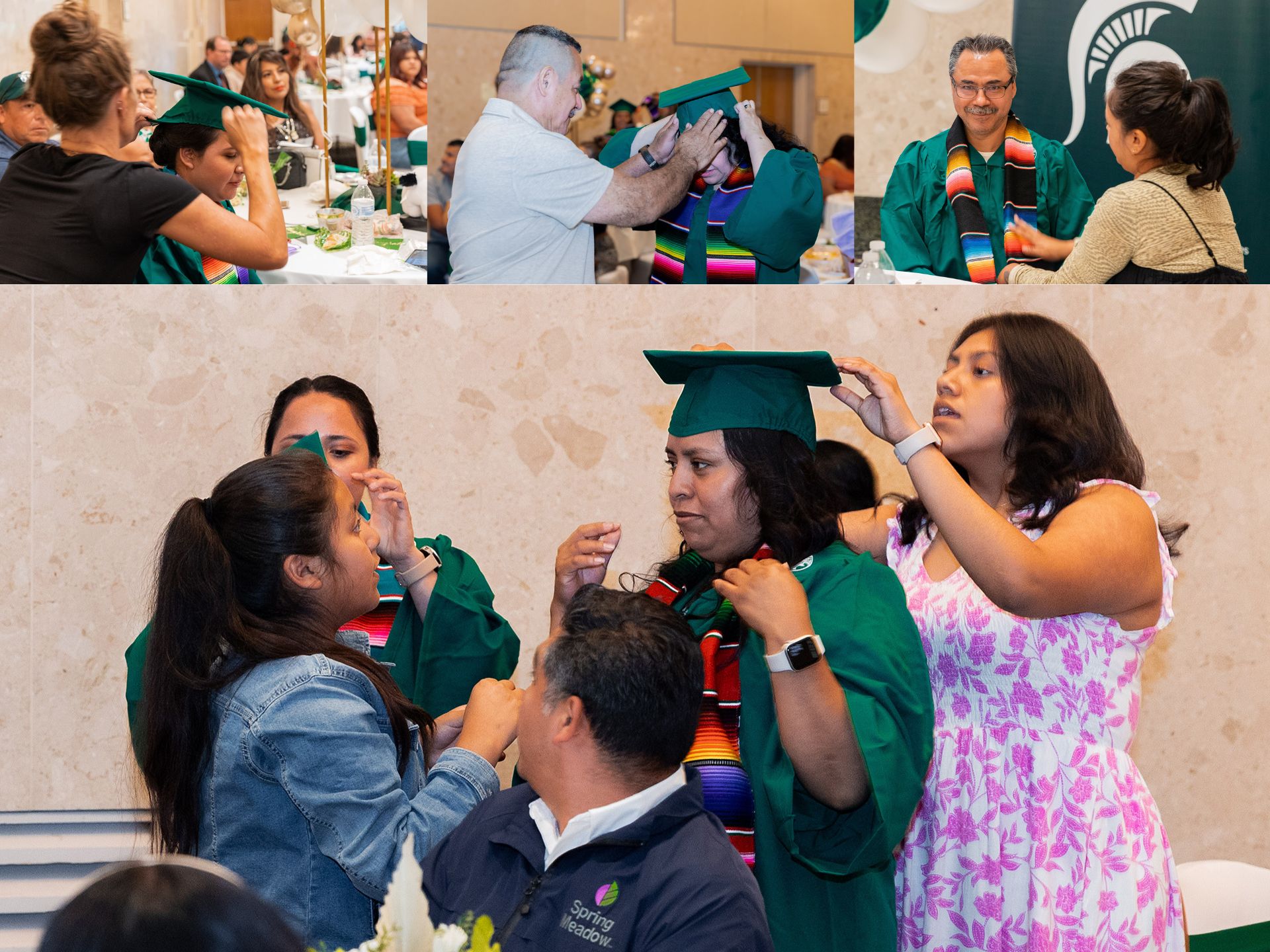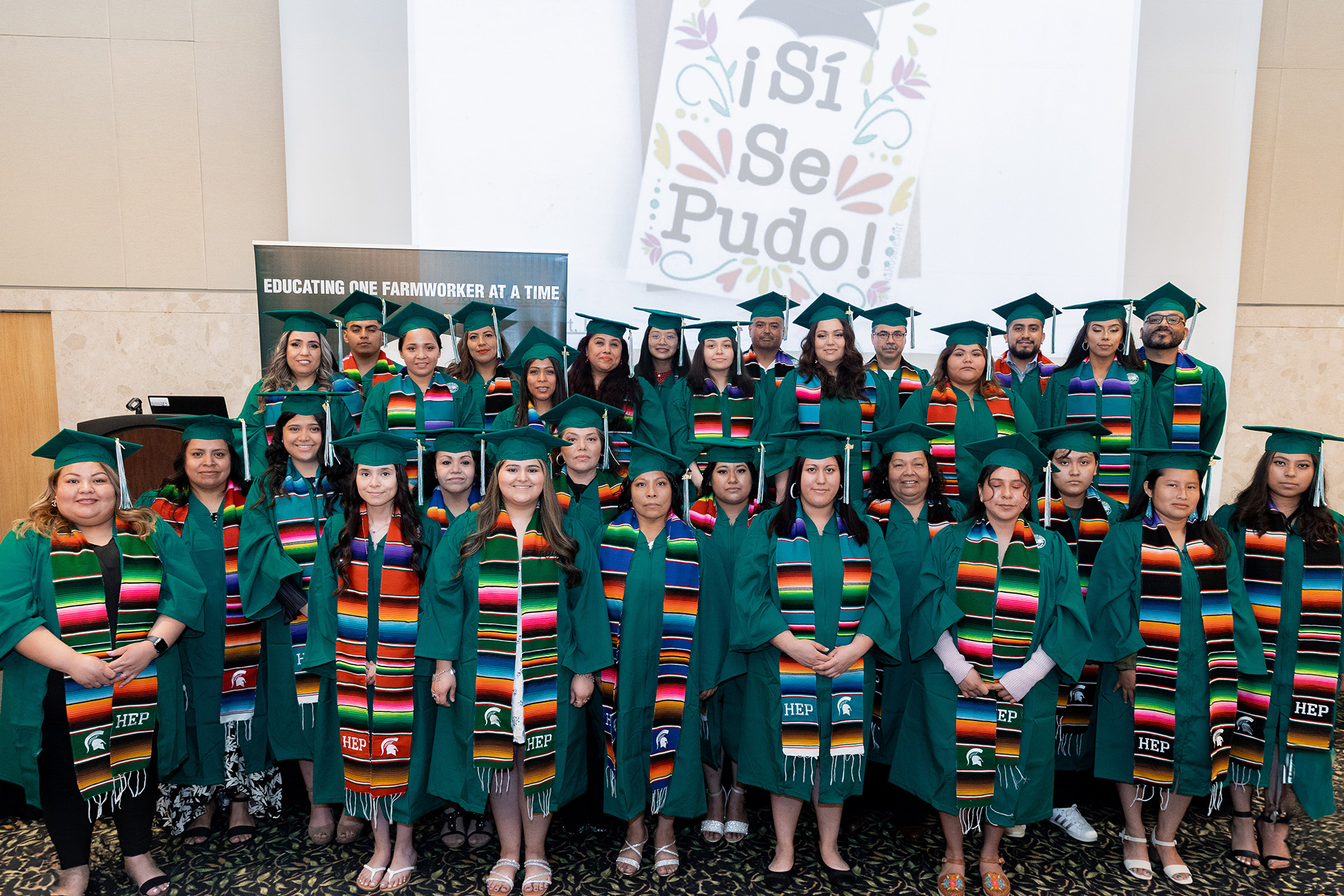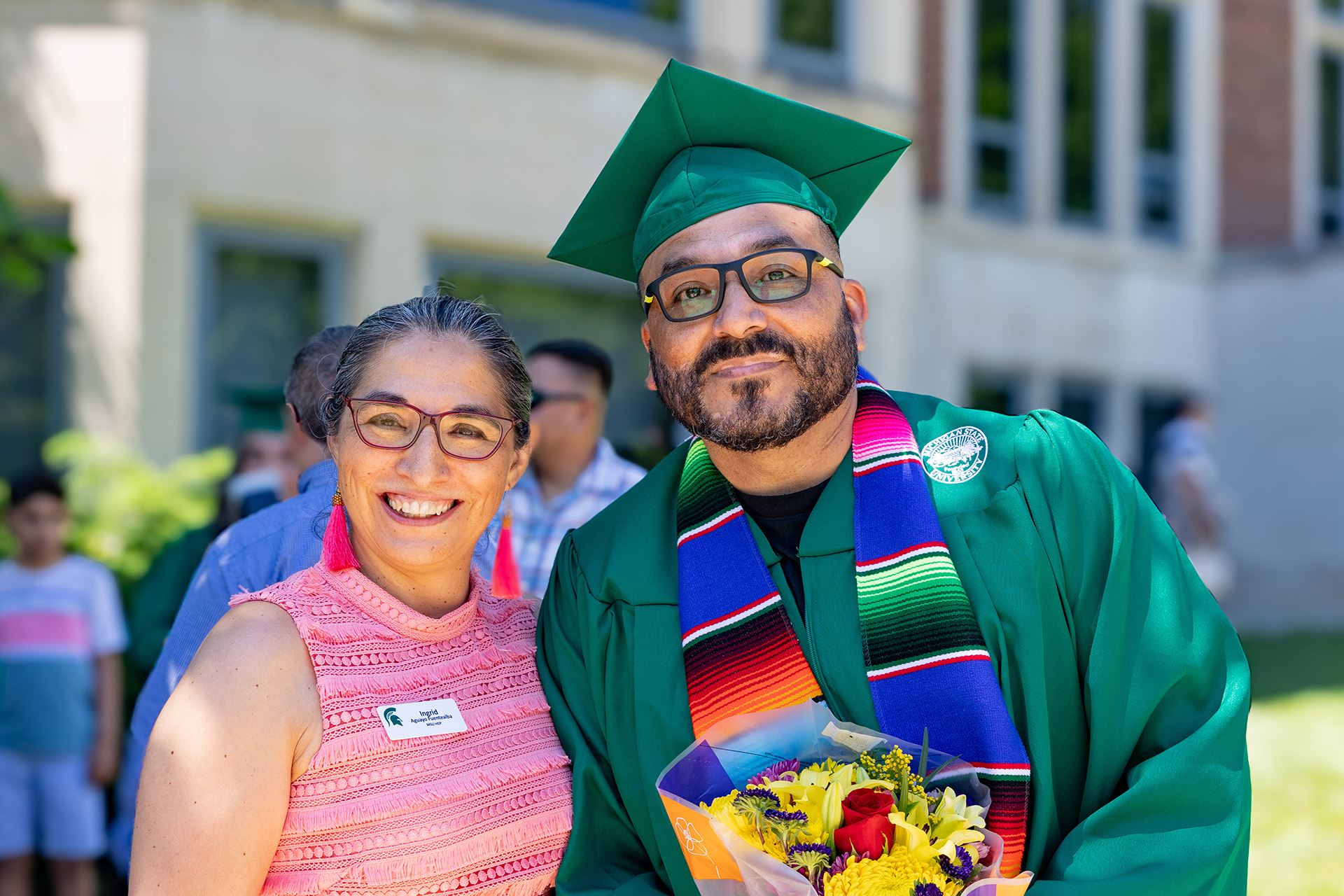The High School Equivalency Program is a bilingual program from MSU’s Migrant Student Services that provides migrant and seasonal farmworkers an opportunity to obtain a High School Equivalency Certificate through the General Educational Development test.
 Migrant and seasonal farmwork is a pivotal industry for Michigan, contributing billions annually to the state’s economy. Michigan leads the nation in producing many crops, including tart cherries, cucumbers, apples, cranberries and more. In addition, it ranks second in the nation for crop diversity, only behind California. This industry relies heavily on migrant farmworkers, seasonal farmworkers who must travel for work. They are away from home for weeks or months at a time to support farmwork schedules. This essential form of work commonly interrupts the educational careers of its young workers as well as children of migrant farmworkers.
Migrant and seasonal farmwork is a pivotal industry for Michigan, contributing billions annually to the state’s economy. Michigan leads the nation in producing many crops, including tart cherries, cucumbers, apples, cranberries and more. In addition, it ranks second in the nation for crop diversity, only behind California. This industry relies heavily on migrant farmworkers, seasonal farmworkers who must travel for work. They are away from home for weeks or months at a time to support farmwork schedules. This essential form of work commonly interrupts the educational careers of its young workers as well as children of migrant farmworkers.

In 2002, MSU’s Migrant Student Services understood the educational barriers facing migrant and seasonal farmworkers and began investigating ways to receive funding for a High School Equivalency Program, or HEP, at MSU. Thanks to the work of Luis Alonzo Garcia, the director of Migrant Student Services and principal investigator for the 2002 grant, MSU’s High School Equivalency Program began to receive funding.
This newfound national support allowed MSU’s Migrant Student Services to serve individuals within the agricultural and migrant farmworker communities of Michigan and surrounding areas with an opportunity to complete their secondary education. The program’s purpose is to motivate, educate and empower its migrant and seasonal farmworker students, and their families, to gain improved employment opportunities, including other postsecondary education or training.
HEP supports each student in their academic, vocational and personal development to obtain the confidence and preparation necessary for higher education or new labor challenges.

“I just want to say how grateful I am to have been able to join MSU HEP. Without their help and support from all the staff, I would not have been able to achieve some goals,” said HEP student Claudia Trujillo.
The U.S. Department of Education’s Office of Migrant Education HEP awarded the university $2.37 million to be distributed over five years to operate the MSU HEP program. These funds help pay for students’ materials, such as laptops, hotspots and exams, along with helping them with transportation, running events like graduation, providing bilingual staff and more.
The funds also provide stipends for the students in accordance with their needs, such as those with dependents. In accordance with the institutional support provided by MSU, the grant also helps fund HEP staff salaries, travel expenses and professional development.

“This program is absolutely amazing. They work with your work hours, there is always tutoring and coordinators are always there to help you. HEP is a great program. There are a lot of classes, but HEP always pushes you to do your best.”
-Lorena Paz, current HEP student
Most students admitted to HEP fall under the poverty line and need support in different areas. “We identify student’s barriers and work to support them so they can be successful,” said Ingrid Aguayo-Fuentealba, the associate director for MSU’s High School Equivalency Program. “The program helps progress their professional and educational career and puts them in a better position than they were before the program.”
Just like the College Assistance Migrant Program and Identification and Recruitment Center, MSU’s HEP provides outreach that otherwise would not exist for the university. The program connects with members of migrant and seasonal farmworker communities who may not otherwise consider advancing their educational careers.

“The MSU HEP program helped me a lot, and I have learned many things. Thanks to this program, I have progressed. That is why I want to give thanks to the program organizers, directors, teachers and coordinators. We are a big family; thanks to HEP, we will all achieve our goals.”
-Gloria Solorio, current HEP student
This is especially important as migrant and seasonal farmwork is pivotal to the economy in Michigan. In fact, the program makes Michigan State University one of only four institutions in the state that offers General Educational Development preparation in both English and Spanish. It is vital to provide migrant and seasonal farmworkers an opportunity to comfortably pursue their studies in their spoken language.
June is Immigrant Heritage Month. To learn more about MSU's Migrant Student Services, visit the MSU High School Equivalency Program.